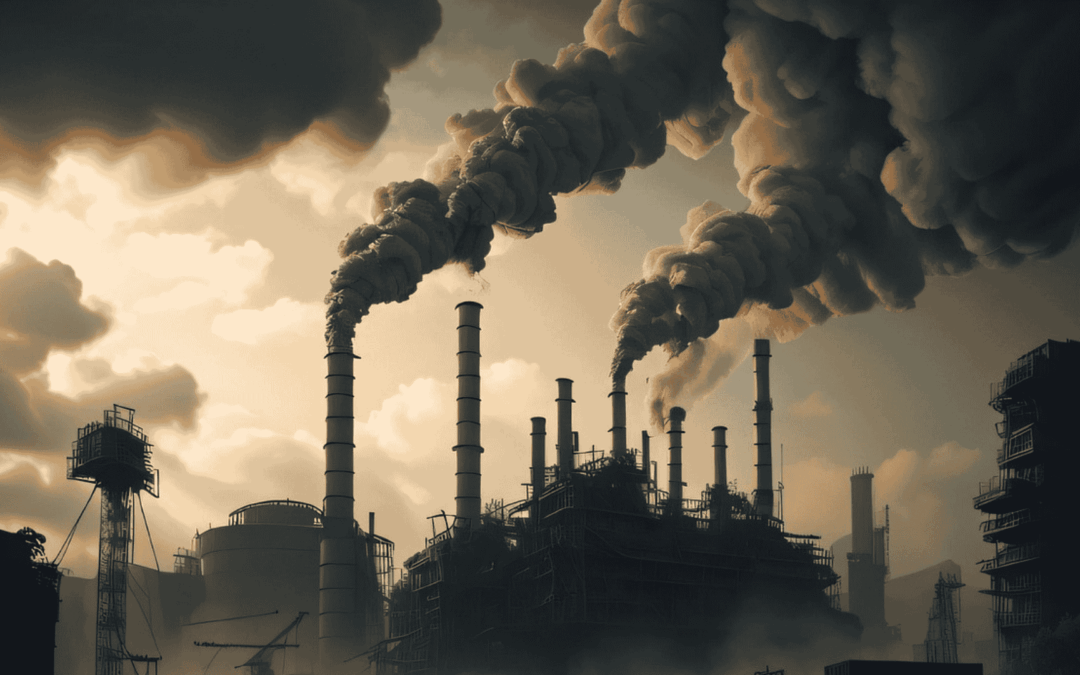When politicians promise to “Make America Great Again,” they often invoke a nostalgic image of the United States in the 1950s and early 1960s. It was a time of booming industry, suburban growth, and rising middle-class prosperity. For many, this post–World War II period symbolizes strength, order, and economic success. But there’s a critical piece of the puzzle often missing from that romanticized vision: the environment paid the price — and it almost broke.
While factories were booming and highways were stretching coast to coast, the environment was breaking. Rivers caught fire, wildlife vanished, and the air in American cities was thick with pollution. It wasn’t until this crisis reached a boiling point that the U.S. created one of the most important agencies in its history: the Environmental Protection Agency (EPA).
Today, that same agency is under threat—at a time when we need it more than ever.
What Was the Environmental Impact of America’s So-Called Golden Age?
Between 1945 and 1973, the United States experienced unprecedented economic growth. But with no regulatory oversight, industries dumped toxic waste into rivers, belched pollutants into the skies, and used chemicals like DDTwithout considering the consequences.
Some of the most visible signs of environmental collapse included:
-
The Cuyahoga River fire in 1969, caused by flammable industrial waste
-
Smog-choked cities like Los Angeles and New York
-
The near-extinction of bald eagles and peregrine falcons, poisoned by pesticides
-
Widespread habitat loss due to unchecked urban sprawl and infrastructure expansion
It was a time of prosperity for some—but a disaster for the environment.
The Birth of the Environmental Protection Agency
In 1962, Rachel Carson’s groundbreaking book Silent Spring sounded the alarm on pesticide use and ecological harm. Public outrage grew, and a national environmental awakening began.
By 1970, the federal government responded by establishing the Environmental Protection Agency. Its mission was clear: to protect human health and the environment through science-based regulations and enforcement.
The EPA quickly got to work:
-
Clean Air Act (1970): Reduced smog and airborne toxins
-
Clean Water Act (1972): Regulated pollution and protected waterways
-
Endangered Species Act (1973): Shielded animals from extinction
These laws didn’t just protect ecosystems—they saved lives. In fact, studies show that air pollution controls alone prevent hundreds of thousands of premature deaths each year.
Fast Forward: Why the EPA Is Under Threat Today
Beginning in 2017, the Trump administration launched a sweeping rollback of environmental protections, undermining the EPA’s mission:
-
Lifted limits on power plant emissions
-
Gutted fuel efficiency standards for vehicles
-
Opened up formerly protected lands to oil and gas drilling
-
Slashed EPA funding and removed mentions of climate change from government websites
These changes were justified as pro-business—but they ignored the very real costs to public health and the planet.
Today, those deregulatory trends continue. Proposals to weaken the Clean Air Act, delay climate action, and shrink the EPA’s authority threaten to undo 50 years of progress.
What Happens If We Lose the Environmental Protection Agency?
Without the EPA:
-
Corporations face fewer consequences for polluting air and water
-
Vulnerable communities—especially Indigenous and low-income neighborhoods—suffer the most
-
Endangered species lose protection
-
Climate change accelerates unchecked
The Environmental Protection Agency is not red or blue. It’s not about politics. It’s about protecting our right to breathe clean air, drink safe water, and live in a healthy world.
A Better Kind of Greatness
If we want to talk about making America great, we need a new definition—one that includes sustainability, environmental justice, and the long-term health of our communities.
That’s not a step backward. It’s a leap forward.
Want to get involved?
-
Support environmental watchdog organizations like NRDC and Earthjustice.
-
Call your representatives and demand they uphold environmental protections.
-
Educate others on the history and importance of the EPA.
Because we’ve seen what happens without it — and we should never want to go back.

